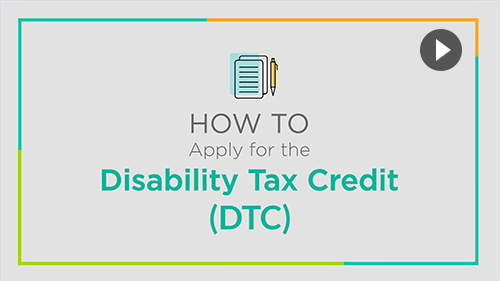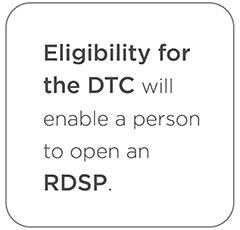
The Disability Tax Credit (DTC) is a non-refundable tax credit. It helps people with a disability, or those who support them, to reduce the amount of income tax they have to pay. The DTC also opens the door to other valuable credits and programs.
There is no age requirement. Children, adults, and seniors can all qualify if they have a severe, prolonged disability.

ELIGIBILITY:
ELIGIBILITY:
To be eligible a person must meet the following three criteria:
- Must have a severe impairment in physical or mental functions.
- The impairment must be prolonged, meaning, it must have lasted or is expected to last, for a continuous period of at least 12 months.
- Must be restricted at least 90% of the time.
but rather on the effects that the impairment has
on a person and activities of daily living.


To apply you must complete the Canada Revenue Agency’s (CRA) form T2201 - the form has two parts:
- Part A is completed by the individual or a representative
- Part B is completed by the medical professional Access the T2201 Form HERE
There are a number of different medical practitioners who can complete this section of the T2201. Click here for a complete list.
Disability Alliance BC has developed a tool which will help you and your medical practitioner complete the TT2201. Learn more about the tool here.
AFTER APPLYING:
AFTER APPLYING:
After you have submitted your completed T2201 form to CRA, they will review your application. You can expect on average to hear back within eight weeks of submission. You can check the CRA processing time here.
CRA may have follow-up questions and will send a letter asking for clarification to your medical practitioner directly.
CRA will send you a notice of determination to let you know about your eligibility.
If your application is denied, you have 90 dates to submit an appeal. You will need to file a notice of objection, which will contain facts and reasons you believe CRA should reverse their decision.


